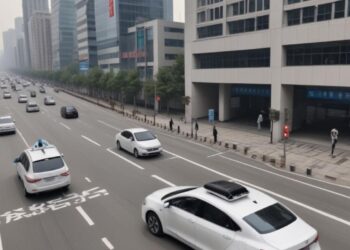In a landmark move, the UK government has officially enacted the Automated Vehicles Act 2024, setting the stage for self-driving vehicles to be on the roads by 2026. The legislation is expected to revolutionize transportation, marking a significant leap toward autonomous mobility across the UK.
A Brand New Era in the Autonomous Vehicles?
The AV Act, a comprehensive legal framework, is designed to ensure the safe deployment of self-driving vehicles. It mandates that autonomous vehicles meet safety standards equivalent to those of careful and competent human drivers. This legislation is about technological advancement and significantly enhancing road safety by reducing human error, a factor in 88% of road collisions.
Transport Secretary Mark Harper hailed the passage of the AV Act as a “milestone moment” for the UK’s self-driving industry. “Britain stands at the threshold of an automotive revolution,” Harper stated, emphasizing that the new law will boost road safety and stimulate economic growth.
Economic Impact
The self-driving vehicle industry is projected to become a £42 billion sector by 2035, creating approximately 38,000 skilled jobs. The UK has already seen substantial investment in this sector, with £475 million in direct investment and 1,500 new jobs created between 2018 and 2022.
Ongoing Trails and Funding
The Automated Vehicles Act follows extensive self-driving trials across the country. Notable British companies such as Wayve and Oxa are at the forefront of conducting trials in London and Oxford.
In May 2024, Wayve, a home-grown British company, had secured more than $1 billion in investment to develop its AI technology. This substantial funding will enable Wayve to accelerate its development of self-driving technology, positioning the company as a leader in the autonomous vehicle industry.
Oxa, another prominent player in the UK’s autonomous vehicle sector, is also conducting critical trials. Their focus on integrating advanced AI with robust engineering is paving the way for safer and more reliable self-driving solutions. These trials are instrumental in providing the data and insights needed to refine and perfect autonomous vehicle technology.
Legislation Overview
The Automated Vehicles Act 2024 provides a comprehensive framework for deploying and regulating self-driving vehicles. The Act outlines the safety standards, insurance requirements, and operational guidelines for integrating autonomous vehicles into the current transportation system.
Key provisions include:
1. Safety and Performance Standards
All autonomous vehicles must meet rigorous safety criteria, ensuring they can operate safely in various road conditions and scenarios.
2. Insurance and Liability
The Act mandates that self-driving vehicles carry specialized insurance policies. In the event of an accident, liability will primarily lie with the vehicle’s manufacturer or software provider.
3. Data and Cybersecurity
To protect against potential cyber threats, the Act requires robust data protection measures and regular security audits.
4. Marketing Restrictions
Additionally covered by the Act is marketing. If customers think a car is sufficiently autonomous and, therefore, do not monitor the road when they have a vehicle with a restricted driver-aid capability, there are clear safety implications.
Evoltronic View
At Evoltronic, we believe the enactment of the Automated Vehicles Act 2024 is the beginning point in the development of self-driving vehicles. The UK Government is planning to make the country a global hub for autonomous vehicle innovation.
Furthermore, the AV Act is also expected to improve transport accessibility, particularly for individuals in rural areas, by enhancing mobility and reducing isolation. This aligns with the government’s broader goal of making transportation more inclusive and efficient.
We at Evoltronic will continue to monitor and report on these developments, providing our readers with the latest insights and analysis on the road to 2026 and beyond.










